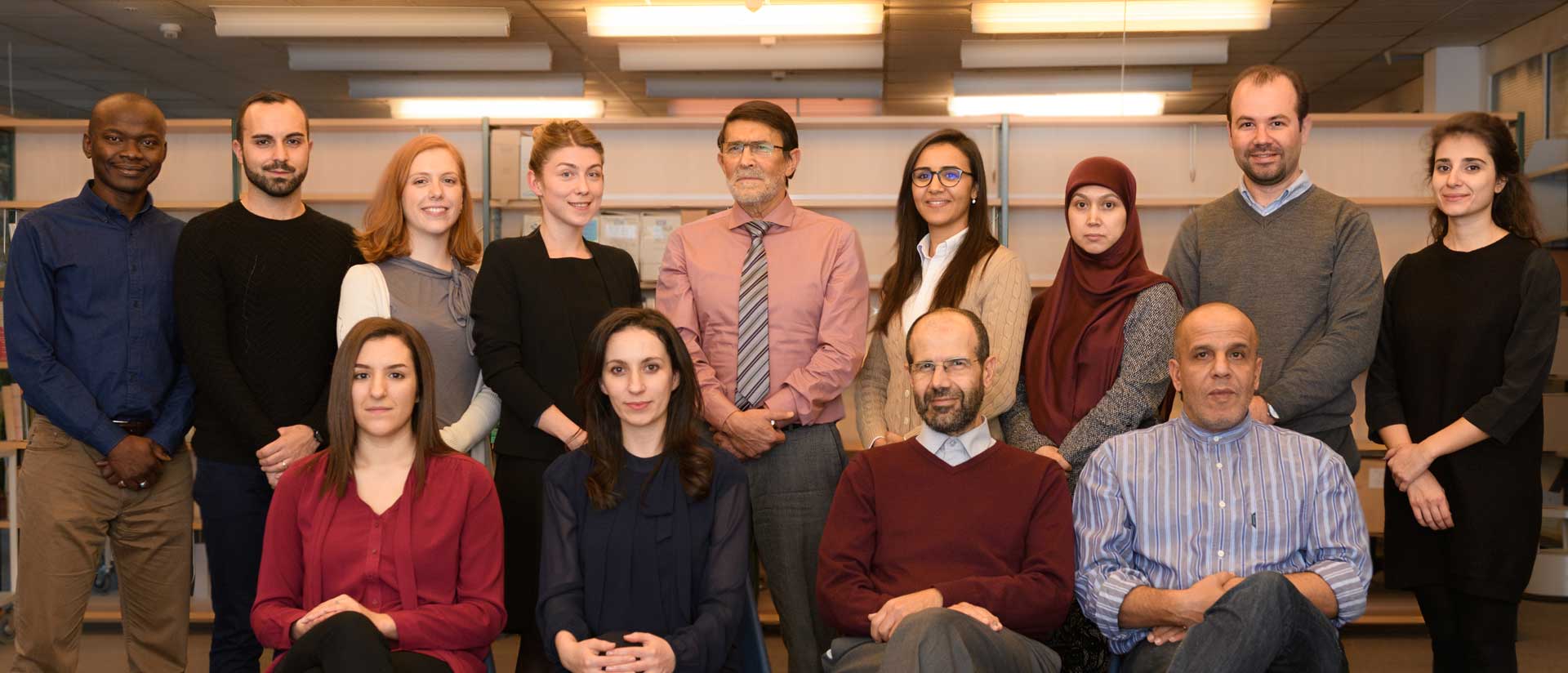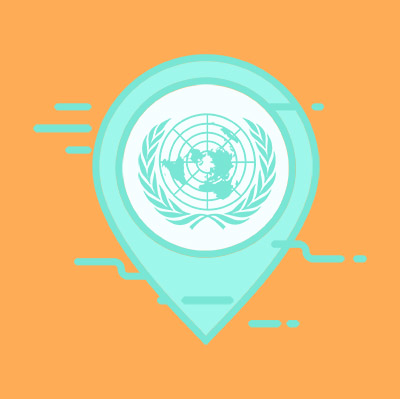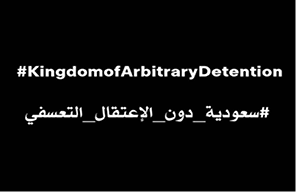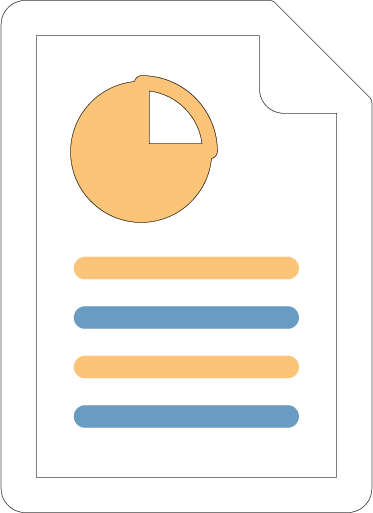
Acting as a bridge between victims of severe human rights violations and the UN human rights mechanisms, Alkarama makes every effort to ensure that these mechanisms are strengthened and able to protect and promote human rights in the region.
Supporting the Office of the High Commissioner for Human Rights…
In the beginning of 2016, Alkarama attended a regional conference on “the Role of the Office of the High Commissioner for Human Rights in Promoting and Protecting Human Rights in the Arab Region” in Doha, Qatar, which welcomed over 230 participants from governments, regional and civil society organisations, and the OHCHR. An interactive dialogue was held between the participants to discuss the response of the human rights protection mechanisms to the situation in the Arab world. During the conference, an OHCHR representative deplored the lack of funding of the human rights pillar at the UN, as well as the denial of access to certain countries, both of which have impeded the implementation of human rights programmes. Moreover, the Chief of the Civil Society Unit denounced the “counterproductive” restrictions on the freedoms of expression and peaceful assembly in the region, in particular the arbitrary arrests that civil society members are too often subjected to, including under restrictive anti-terrorism laws that are used “to shut down their legitimate activities”.
Supporting the UN Special Procedures…
On 8 June 2016, Alkarama participated – as it does every year – in the annual Meeting of the Special Procedures. We welcomed both the launch of an online platform for the submission of communications and the increased visibility of the work of UN experts through the OHCHR website. During the meeting, Alkarama raised the issue of the lack of follow-up on communications sent to governments and called on the Special Procedures to issue public statements when a State is unwilling to cooperate with the UN. In response, the Chairperson of the UN Working Group on Arbitrary Detention (WGAD) explained that the experts were going to include follow-up information on the implementation of the Opinions issued. The Special Rapporteur on human rights defenders, Michel Forst, highlighted a concern shared by both UN experts and Alkarama, namely the lack of substantial elements in States’ responses to communications. Lastly, Alkarama raised the difficulties encountered when assisting victims of violations by non-state actors, especially in conflict-affected countries. Since most UN human rights mechanisms only communicate with internationally recognised governments, such violations remain unaddressed, leading to a growing frustration among the families of the victims. On this specific issue, the Special Rapporteur on the right to freedom of opinion and expression (SR FRDX) responded that the Special Procedures were trying to handle such cases, in particular for human rights violations committed by business corporations.
In addition, throughout the year, Alkarama met with several Special Procedures mandate holders with whom it works closely. During the 32nd session of the HRC in June, Alkarama met with the SRFRDX, David Kaye, to thank him for his prompt intervention on numerous cases brought to his attention, but also to raise concerns over the state of freedom of opinion and expression in specific countries, including in Algeria, Egypt, Jordan, Kuwait, Lebanon, Palestine, and Saudi Arabia. During the HRC session, Alkarama’s legal officers also participated in an informal discussion with the Special Rapporteur on the independence of judges and lawyers, Mónica Pinto, who sought civil society input for the preparation of a thematic report on the situation of lawyers and obstacles to their independence. Alkarama provided insight on the situation of lawyers in the Arab world, in particular on the hurdles they face when operating in flawed and partial legal systems. Alkarama also denounced the prosecution of some of these lawyers on the grounds that they were assisting individuals accused of “terrorism” and were thus deemed “disloyal to the State”.
On 25 August, Alkarama’s legal team attended an informal meeting between the WGAD and civil society. Alkarama welcomed the announcement by the WGAD of the establishment of a new follow-up procedure to its Opinions, according to which both the State and the victim must provide information after six months on the implementation of the decision by the authorities. Alkarama shared its hope that such a procedure could help put pressure on States to implement the exceeding number of WGAD Opinions that have been continuously ignored so far. On 28 November, Alkarama also participated in the WGAD’s 25th anniversary, during which our team members offered a perspective from victims on the right to be free from arbitrary detention in the Arab world and shared the testimony of former victims who were released following Alkarama’s submission to the WGAD.
In September, during the 110th session of the Working Group on Enforced or Involuntary Disappearances (WGEID), Alkarama met with the Group’s members to discuss several country situations, in particular Egypt, Lebanon, Sudan, Tunisia, and the United Arab Emirates, where recourse to incommunicado and secret detention between the arrest and the indictment of an individual is common and often used to isolate the victim and to force him/her to sign self-incriminating statements under torture. Alkarama also raised the cases of Libya and Yemen where numerous enforced disappearances are committed by non-state actors with whom the WGEID is not communicating, as well as the case of Algeria which is the fifth country in the world with most cases pending before the WGEID with whom it refuses to cooperate.
Lastly, in November, Alkarama met with the newly appointed Special Rapporteur on torture, Nils Melzer, to discuss the priorities to be set by the UN expert in the Middle East and North Africa. Alkarama suggested to the Special Rapporteur and his team that communications on individuals at risk of being deported to a country where they could face torture or other cruel, inhuman or degrading treatment or punishment, as well as cases involving minors, should be treated as a matter of priority by the UN and immediately sent to the relevant authorities. Alkarama, as well as other NGOs attending the meeting, raised some situations of particular concern, in countries such as Egypt and Saudi Arabia, for example, and encouraged the Special Rapporteur to push for the conduct of country visits, since both countries have never responded to his predecessor’s repeated requests.
Supporting the UN Treaty Bodies…
In 2016, Alkarama continued to support the work of the UN Treaty Bodies, in particular through the submission of six shadow reports to the HRCtee, the CAT, and the CED ahead of the reviews of Kuwait, Morocco, Saudi Arabia, and Tunisia. Ahead of each review, Alkarama met with the Committees’ independent experts to brief them on key concerns and ensured the wide diffusion of their Concluding Observations with local civil society.
In December, Alkarama’s Legal Director, Rachid Mesli, took part in an expert meeting between the CAT and Interpol, during which he talked about the impact of Red Notices when used for political purposes, as opposed to combating criminality, which has repeatedly been the case for Arab States that consider peaceful and legitimate criticism as “terrorism”. Mr Mesli, who was for years subjected to a Red Notice issued by Algeria in reprisal for his work as a human rights lawyer, before Interpol decided to withdraw it in May 2016, reflected on his own experience. He explained that political opponents and human rights defenders who go through a similar experience by being listed as “wanted criminals”, live in constant fear of being arrested and extradited at any time to a country where they risk being tortured, in violation of article 3 of the Convention against Torture (UNCAT).
Strengthening civil society action in the framework of the Universal Periodic Review…
This year, Alkarama took part in several initiatives ahead of the Universal Periodic Review of Syria held in October 2016. In September, for example, we participated in a diplomatic forum organised by the OHCHR in Beirut gathering civil society organisations working on Syria in order to brief diplomatic missions on the current human rights situation in Syria and to advocate for specific recommendations to be made during the review. A representative of Alkarama briefed State delegations, as well as the European Union in Geneva, ahead of the review to ensure that recommendations would be made on our key concerns.

Alkarama believes that it is essential to empower local civil society, since an experienced and competent civil society plays a crucial role in ensuring the promotion and protection of human rights in a country. In 2016, Alkarama took part in several initiatives to build and strengthen the capacity of local actors in numerous countries within the region.
Trainings of human rights defenders
Alkarama organised and intervened in various workshops on the UN mechanisms and the documentation of individual cases of human rights violations. In February, our Legal Director gave a training to members of Syrian civil society on the UPR. The workshop was delivered in Istanbul in the framework of a project funded by the German Ministry of Foreign Affairs. In addition, we trained judges, lawyers, and NGOs on the use of international human rights mechanisms and provided technical assistance for the drafting of shadow reports ahead of the review of Syria by the Human Rights Council.
On 9 March, Alkarama provided a half-day intensive training to members of the Moroccan National Human Rights Council and civil society actors. The training was organised by the Geneva Institute for Human Rights, which asked Alkarama to share its experience in assisting victims of human rights violations in the Arab world and to explain the role of NGOs in the promotion and protection of human rights within the UN framework.
Lastly, in May, alongside the review of Tunisia by the CAT in Geneva, Alkarama provided a training to local civil society actors on reporting to the UN Treaty Bodies and the documentation of cases of violations of fundamental rights and freedoms in their country. The workshop focused primarily on violations of the right to freedom of peaceful assembly and association and how to protect these rights when faced with severe restrictions by the authorities.
Denouncing reprisals against human rights defenders
In 2016, numerous human rights defenders with whom we work closely faced reprisals for cooperating with the UN human rights mechanisms. As every year, Alkarama submitted a report to the UN Secretary General (UNSG) reporting such instances of reprisal. In his annual report, released in September 2016 before the Human Rights Council, the UNSG stressed “the absolute unacceptability of any act of intimidation or reprisal, no matter how seemingly subtle or explicit” and that “such acts, which run contrary to the principle of human dignity and violate numerous human rights, show complete contempt and disregard for the United Nations system as a whole”.In relation to the Arab world, Mr Ban Ki-Moon condemned the retaliatory measures taken against human rights activists in several countries including in Iraq, where three members of the NGO Al Wissam Humanitarian Assembly were subjected to reprisals for documenting cases of enforced disappearances to the Committee on Enforced Disappearances; in Sudan, where human rights activists were prevented from travelling to Geneva to attend their country’s Universal Periodic Review; as well as in Oman and the United Arab Emirates, where a prominent activist and a blogger were prosecuted for having met the Special Rapporteur on the rights and freedom of peaceful assembly and association and the Special Rapporteur on the independence of judges and lawyers, respectively.
Through its work, Alkarama wishes to engage in a constructive dialogue with States in the Arab world and to promote better respect for human rights and the rule of law in the region. In 2016, Alkarama thus undertook several initiatives to this end, especially in Lebanon, where Alkarama established offices in 2007. In this regard, as a member of the Follow-Up Committee on Lebanon’s UPR, along with several local NGOs, Alkarama took part in several meetings with the Lebanese authorities. In January, we met with the Minister of Justice and the Head of the International Organisations Department at the Ministry of Foreign Affairs (MoFA). Amongst the points discussed were the draft law submitted by the Ministry of Justice to the Council of Ministers, which sought to abolish military courts and the Judicial Council – exceptional jurisdictions that do not abide by due process guarantees – as well as the establishment of a mechanism within the MoFA that would coordinate with the UN human rights mechanisms and will be responsible for drafting State reports to the Treaty Bodies and respond promptly to communications. In October, Alkarama met with a representative of the Ministry of Justice who explained that the Minister was working on a draft law to amend article 108 of the Code of Criminal Procedure, which allows for unlimited pre-trial detention as well as on a law to establish a national commission on enforced disappearances.
In April, the UPR Follow-Up Committee and the OHCHR organised a conference to discuss the level of implementation of the recommendations accepted by Lebanon. Alkarama attended the conference alongside representatives of several Lebanese NGOs, a member of the Parliamentary Human Rights Committee, the head of the Internal Security Forces’ Human Rights Committee as well as observers from several European embassies. Priority issues were discussed, including the practice of torture and the need to adopt a law criminalising this practice; the need to establish a National Preventive Mechanism in line with the Optional Protocol to the UNCAT; the need to address overcrowding in prisons and poor conditions of detention; as well as the need to put an end to arbitrary detention and halt the recourse to exceptional jurisdictions.
Lastly, in August, Alkarama and nine other local NGOs sent a letter to the Lebanese Minister of Foreign Affairs calling upon him to accept the request made by the UN Special Rapporteur on the independence of judges and lawyers to visit the country in 2016. Indeed, in March 2011, the Lebanese government extended a standing invitation to all UN Special Procedures and by doing so, committed to accept requests for country visits by these experts. The ten co-signatory organisations demanded that the Lebanese government uphold this commitment and accept the request for visit submitted by the Special Rapporteur in November 2015 and facilitate her visit in 2016. The NGOs added that such a visit would allow for an objective assessment of the functioning of the justice system and provide useful recommendations to pave a better way forward.

The media is an essential tool for raising awareness on major human rights issues and bringing visibility to victims of violations in the Arab world. In this regard, both Arab and international media outlets are of major significance.
This year, Alkarama has been an important source of independent and expert information for several Arab and international media outlets. Our staff participated in press conferences and live debates broadcasted on TV stations to discuss the human rights situation in Arab countries as well as cases of victims of human rights violations handled by Alkarama. Among these media outlets, were ARD, Al Jazeera, Al Mayadeen, Al Magharibia and Lulua.
Moreover, many press articles cited the work of our organisation or shared testimonies of victims whose cases were handled by Alkarama. These included the Huffington Post, The Independent, Middle East Eye, and the Daily Star. Alkarama’s legal officers also published several Op Eds on Open Democracy, including on enforced disappearances in Algeria; on Jordan’s Anti-Terrorism Law and the crackdown on the dissent; on Saudi Arabia and the repression of human rights defenders; on the opening of a US drone base in Tunisia; and on the UAE’s criminalisation of free speech.

Alkarama continued to strengthen its presence on social media, including Facebook and Twitter, to shed light on the plight of the victims we defend and to provide reliable information on the general human rights situation in Arab countries. This has allowed us to reach a broader audience and increase the dissemination of information on human rights in the region, particularly in countries where access to our website is blocked.
In October of this year, we also launched our first media campaign on arbitrary detention and reprisals against human rights defenders in Saudi Arabia under the hashtag #KingdomofArbitraryDetention, drawing tremendous attention from Saudi citizens, as well as Arab and international civil society and media.
Finally, in December, Alkarama launched its new website with a new design and a better browsing experience to facilitate access to information and provide a richer content to visitors, as well as a heightened visibility of the stories of victims. In an effort to better reflect the modernity and dynamism of the organisation, Alkarama has also redesigned its logo.

Throughout 2016, Alkarama also had the opportunity to give talks to students who wanted to learn more about the work of a human rights NGO that interacts with the UN mechanisms on a daily basis and is specialised on the situation of human rights in the Arab region.
In March, one of Alkarama’s staff members in Lebanon gave a presentation about the role of NGOs in strengthening human rights on the ground to students in the Arts, Sciences, & Technology University in Lebanon in Beirut.
In May, our team presented its work to students of a Masters Programme in Human Rights from the University of Glasgow during their visit to Geneva. Alkarama explained the main issues at stake in the region, as well as its strategy to address them through the use of UN human rights mechanisms in order to allow for the promotion of human rights in each country.
Lastly, in November, we welcomed students from Washington State University to our office, who were seeking the insight of an NGO advocating for human rights, as they were working on finding practical and innovative solutions to address the practice of arbitrary detention in the United States.

Since 2009, Alkarama has held an annual award ceremony around Human Rights Day on 10 December, to honour prominent personalities or organisations that have contributed considerably to the protection and promotion of human rights in the Arab World. The objective of this ceremony was to make these human rights defenders known to the international community by shedding light on their actions and steadfast commitment to human rights in their country.
As of 2016, taking into consideration the hurdles specific to the region and adapting its strategy accordingly, the Alkarama Foundation decided to take more concrete action in supporting the “Human Rights Defenders of the Year”, in the hope of achieving greater impact in the protection and promotion of human rights in the Arab World, thus forgoing its annual award ceremony and instead conducting an international advocacy campaign.
Accordingly, on 12 October 2016, the Alkarama Foundation launched the #KingdomofArbitraryDetention campaign to address arbitrary detention and the prosecution of human rights defenders in Saudi Arabia. This 11-day advocacy campaign comprised an in-depth report, a short film, a joint open letter to the UN High Commissioner for Human Rights, as well as a social media campaign using the hashtag #KingdomofArbitraryDetention. It was launched on the seventh anniversary of the establishment of the Saudi Civil and Political Rights Association (ACPRA) and honours the commitment of its 11 human rights defenders – all of whom have been harshly prosecuted for their peaceful human rights activism. On each of the 11 days, the campaign featured the profile of a different member. Ultimately, the aim of the campaign was to expose the Kingdom’s human rights record on the global stage, encourage the Saudi authorities to end its use of arbitrary detention and to respect the fundamental rights and freedoms of human rights defenders.
The institutionalisation of repressing any dissent in Saudi Arabia has been illustrated by the authorities’ modus operandi when it comes to prosecuting individuals that have merely exercised their fundamental right to freedoms of expression and of peaceful assembly. The crackdown on these basic rights and freedoms is led by the Ministry of Interior and further facilitated by the lack of a Criminal Code, which has given large discretionary powers to judges of the Specialised Criminal Court to charge and sentence peaceful activists under the 2014 Anti-terrorism Law. The latter tribunal, while competent to try cases of terrorism, is known for its blatant violations of fair trial guarantees.
ACPRA has become a symbol of the systematic repression on any dissenting voices by Saudi authorities. Established in 2009 to promote civil and political rights in the country and call for peaceful political reforms to safeguard the fundamental rights of Saudi citizens, ACPRA peacefully advocated for a constitutional monarchy, a universally elected Parliament, and an independent judiciary, as well as the protection of fair trial rights in Saudi Arabia. The organisation has also documented human rights violations, helped relatives of victims file complaints with the Saudi Board of Grievances, and communicated cases of human rights violations to various UN human rights mechanisms, including the UN Working Group on Arbitrary Detention and other Special Procedures.
ACPRA’s very vocal criticism of the Saudi authorities and their repression of dissenting voices resulted in the organisation being banned in 2013. The members of ACPRA were arrested and prosecuted; all faced broad and vaguely defined charges such as “insulting the judiciary”, “calling to break allegiance with the Minister of Interior”, “accusing the judiciary of being unable to deliver justice’, “communicating with international organisations in order to harm the image of the State”, and “forming or joining an illegal organisation.” On this basis, all 11 members were handed down sentences ranging between 4 and 15 years in prison, with many sentences being followed by extended travel bans. Today, the majority of ACPRA’s members are still serving their sentences.
With its #KingdomofArbitraryDetention campaign, Alkarama set out to reach Saudi civil society, to create international solidarity and to have the UN human rights mechanisms condemn the prosecution of ACPRA members and the systematic practice of arbitrary detention in the country. As such, we aligned with principal Saudi human rights activists inside and outside Saudi Arabia and engaged with the most active members of civil society throughout Arab countries on social media. The campaign attracted extensive media attention, with articles being published in Arabi21, Open Democracy, IRIN, the Independent and the Beirut Press. On 17 November, the UN Working Group on Arbitrary Detention publicly denounced the prosecution of ACPRA and the practice of arbitrary detention practiced against dissidents in Saudi Arabia.
While our campaign on arbitrary detention and the prosecution of human rights defenders was effective in raising awareness of these violations at an international level, it should only be seen as a first of many steps necessary to make human rights a reality on the ground. In 2017, Alkarama will continue to monitor the human rights situation in Saudi Arabia, particularly the implementation of the recommendations made by the Committee against Torture following its review in April 2016.


PUBLIC REPORTS
UN MECHANISMS
UNIVERSAL PERIODIC REVIEW
HUMAN RIGHTS COMMITTEE
COMMITTEE AGAINST TORTURE
COMMITTEE ON ENFORCED DISAPPEARANCES
NATIONAL HUMAN RIGHTS INSTITUTIONS